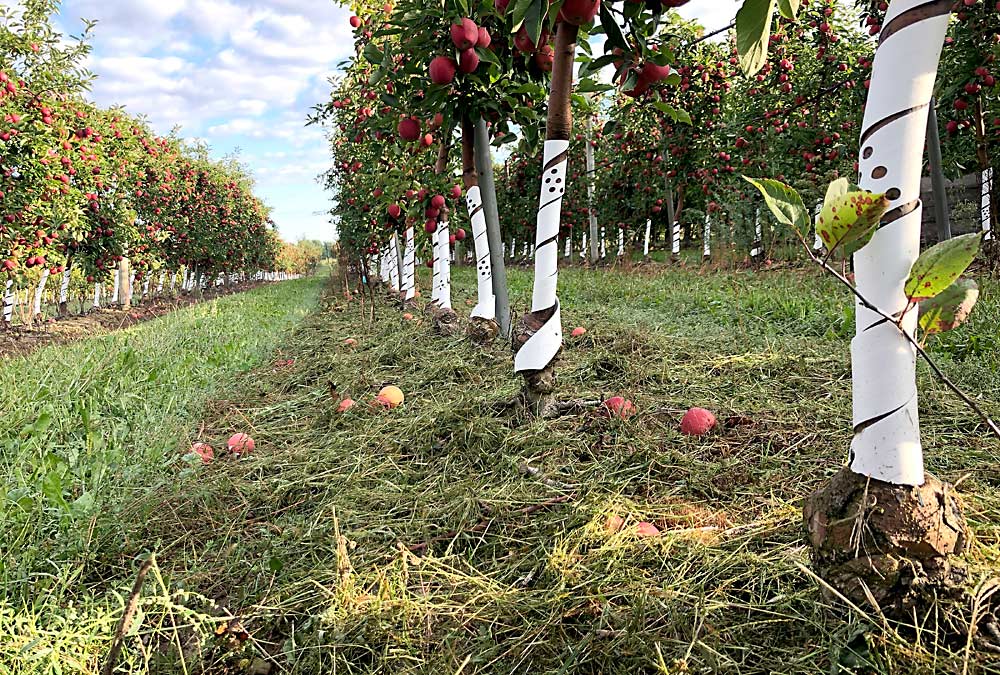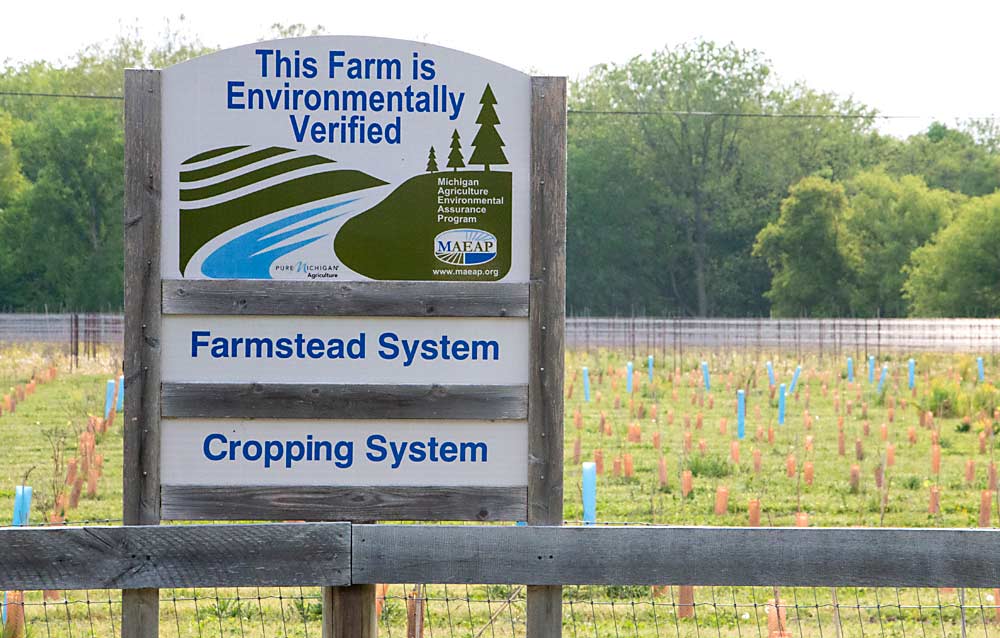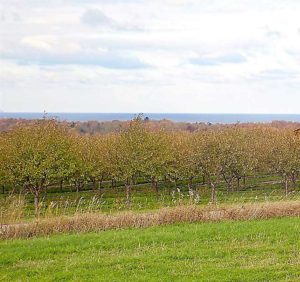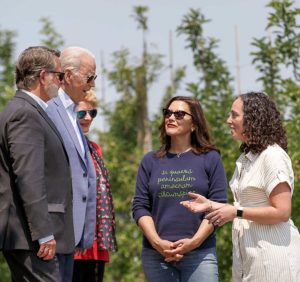
For fruit growers, climate change has been the “big elephant in the room” for some time — something to be dealt with but not necessarily talked about, said Julianna Wilson, a tree fruit IPM specialist with Michigan State University.
By this point, however, most growers recognize that weather patterns have changed in the past decade, and that those changes are affecting their ability to produce a predictable crop, she said.
In the hope that now might be a good time to talk, Wilson and MSU apple production specialist Anna Wallis are organizing a Great Lakes Fruit, Vegetable and Farm Market EXPO educational session called “Managing Fruit Production in a Changing Climate.”
The 2021 EXPO is scheduled Dec. 7–9 at DeVos Place in Grand Rapids, Michigan. The climate change session is scheduled for 9 a.m. Dec. 9.
MSU professor of meteorology Jeff Andresen will begin the session with a presentation on climate change predictions for the Great Lakes region. Following Andresen, a panel of MSU fruit specialists will discuss short- and long-term strategies for managing climate-resilient orchards. A final panel of growers and industry representatives will discuss the marketing challenges and opportunities associated with environmental stewardship.
There are six speakers planned for the marketing panel, representing different parts of the fruit industry:
Juliette King McAvoy, vice president of marketing and sales for King Orchards, will give a direct marketer’s perspective. Her family has been outspoken on the impacts of climate change on orchards, even hosting President Joe Biden in July to talk about it. (see “Apple industry growing young leaders”).
Drew Afton, an agronomist with Gerber/Nestle, will give a food processor’s perspective. He said orchard crops are frequently “off to the side” in conversations about climate change and environmental sustainability. But orchards, with their permanent tree structures that pull carbon out of the atmosphere and sequester it in the soil, have unique climatic advantages that the industry isn’t trumpeting loudly enough. To bolster that message with better data, Gerber has upped its research funding. The company is working with MSU’s Wilson to study deep-rooted native grasses in orchards and the effects they might have on carbon sequestration and soil health.
Dave Smeltzer will give his perspective as an apple and cherry grower and will also discuss his role in the Farming and Food Narrative Project, a collaborative effort to reframe public perceptions about agriculture.
Smeltzer has supplied Gerber with fruit for decades, and has adjusted his spray practices over the years to meet the baby food company’s protocols — relying more on pheromone disruption for codling moth control, for example. But instead of complaining, he said he’s using the changes to “expand my own line of thinking.”
“If you’re not moving with it, you’re going out of business,” Smeltzer said.
Jamie Kober, enhancement director for Riveridge Produce Marketing, will give the packing/marketing/distributing perspective. Riveridge’s retail customers are asking more questions about sustainability and environmental practices, he said, and sustainability certifications might be the wave of the future for growers.
“I think the most important message for growers and customers and consumers is similar to what happened during the food safety audit revolution,” Kober said. “In most cases, growers were already implementing the necessary practices, but were not used to documenting those practices.”

Dan Busby will discuss the Michigan Agriculture Environmental Assurance Program, MAEAP, a state government program that helps farms voluntarily prevent or minimize agricultural pollution. As a program verifier, he’s worked with Michigan fruit growers for decades to make sure their practices meet the program’s sustainability standards. Verified growers can, and often do, put up a sign on their farm announcing their MAEAP status.
Most consumers don’t understand the sign’s significance, unfortunately, and the program isn’t allowed to spend funds on advertising, so it has to rely on program partners to spread the word. Busby would like to see more verified growers promote their status on their farms and spend more time communicating to customers what the verification means.
Lee Lutes, head winemaker and general manager at Black Star Farms, will give the perspective of a Northwest Michigan vineyard and winery. He said the region’s grape growers are doing more to build up organic matter in their sandy soils, especially before planting new vineyards. This includes multiple years of cover crops, as well as inputting wood chips, manure and other green matter.
“We’re all doing things on a more sustainable basis than we were 15 or 20 years ago,” Lutes said. “We’re being presented with new options for disease control in vineyards that are not as heavy-handed as they were in the past.”
—by Matt Milkovich








Leave A Comment